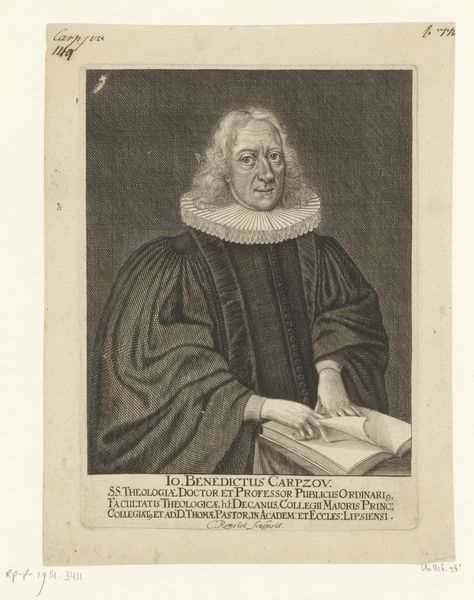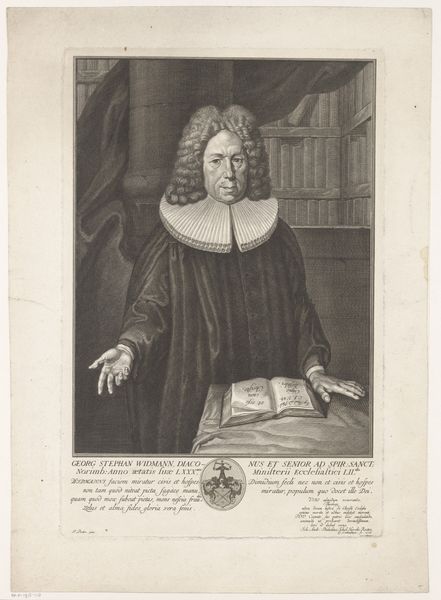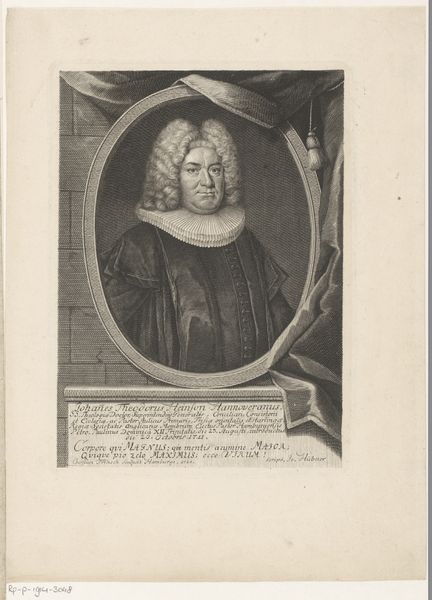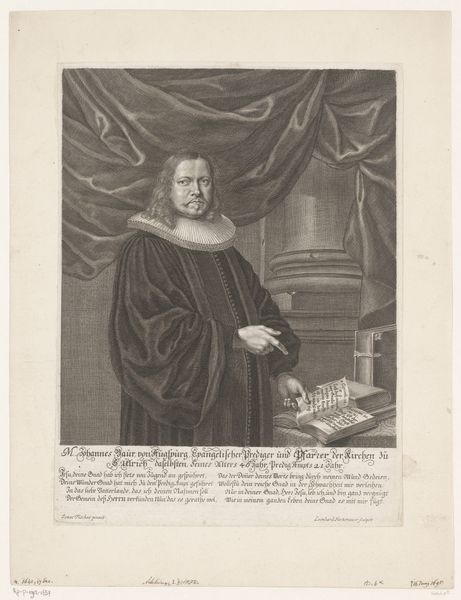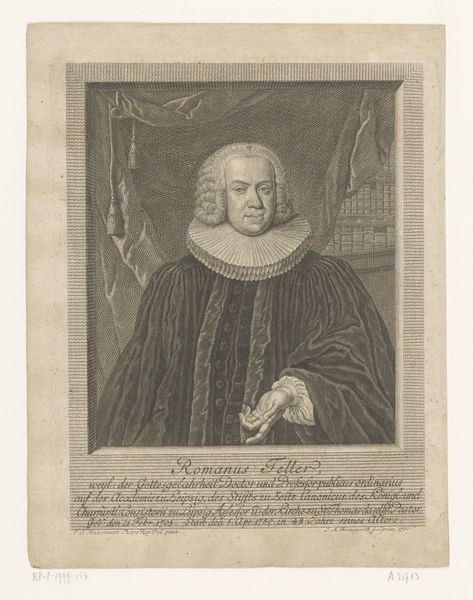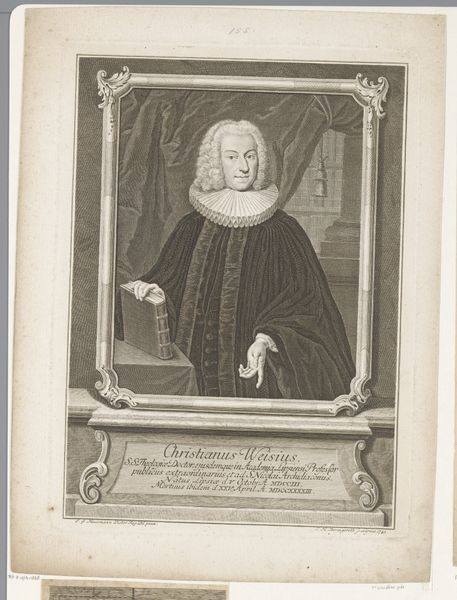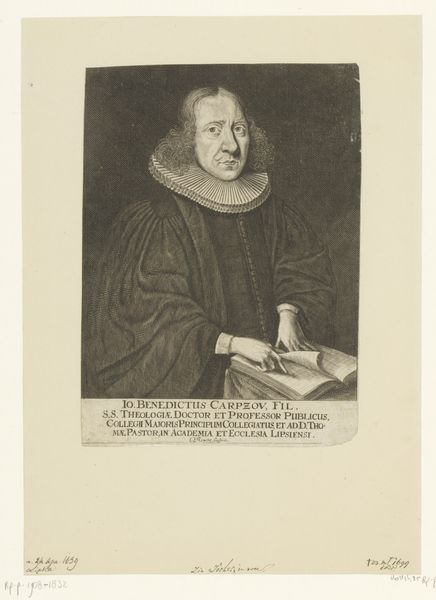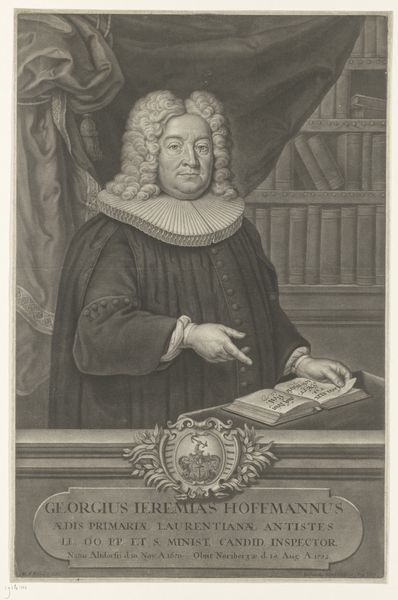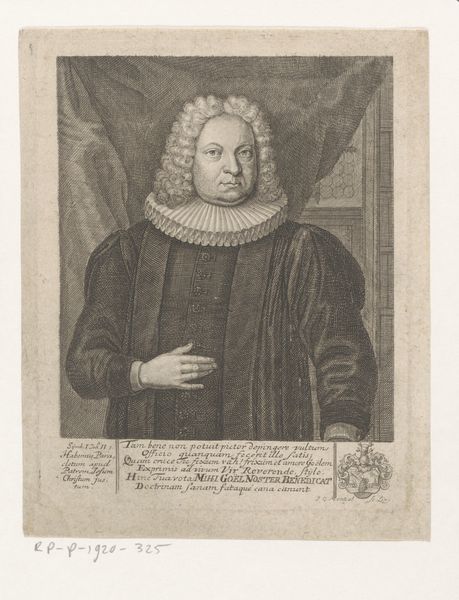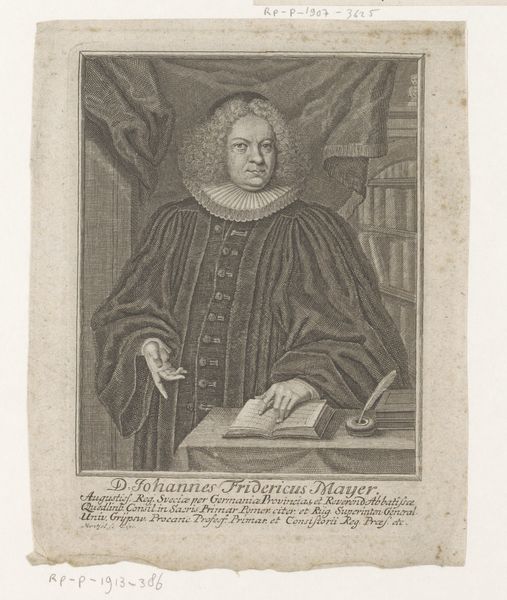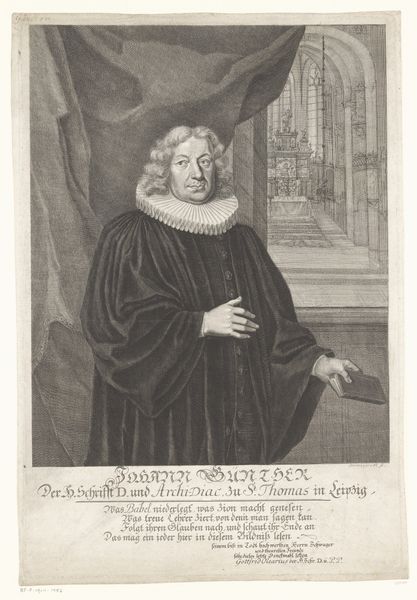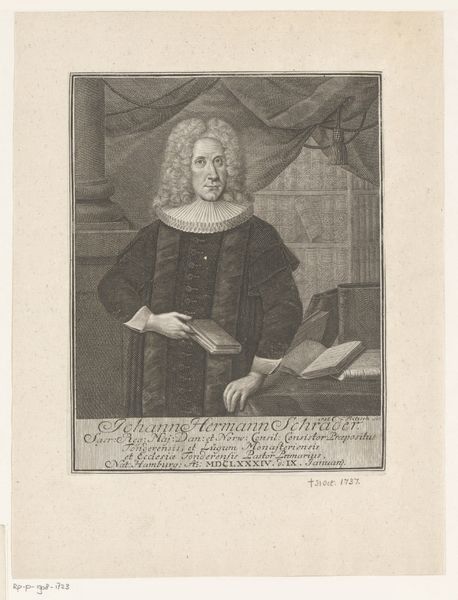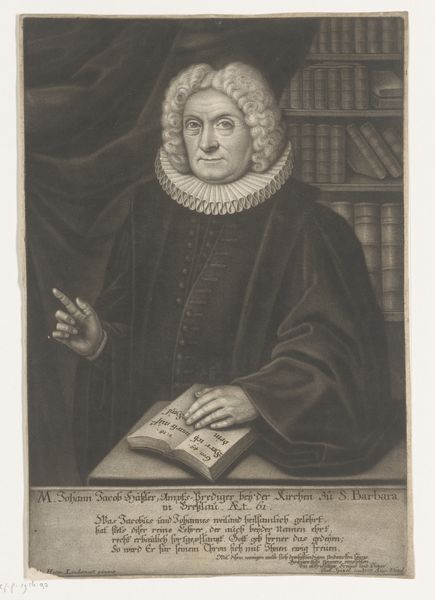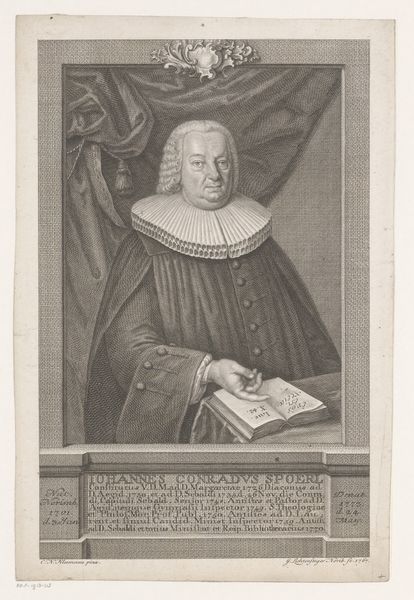
print, paper, engraving
#
portrait
#
pencil drawn
#
baroque
# print
#
paper
#
pencil drawing
#
history-painting
#
academic-art
#
engraving
#
realism
Dimensions: height 187 mm, width 143 mm
Copyright: Rijks Museum: Open Domain
Editor: This is "Portrait of Thomas Ittig," made between 1699 and 1733 by Martin Bernigeroth. It's an engraving on paper, and the figure looks very austere and scholarly. What stands out to you most about this piece? Curator: What strikes me is how this portrait, likely commissioned by or for Ittig himself, actively participates in the construction of his identity within the deeply conflicted landscape of late 17th and early 18th century religious and intellectual life. He’s literally surrounded by symbols of his status – the book, the ecclesiastical robes, even the crucifix – meticulously arranged. But what is he trying to project, and to whom? Editor: So it's more than just a simple likeness? Curator: Absolutely. Consider the context: a period grappling with religious reform, the rise of Enlightenment thinking, and shifting power structures. The sober realism contrasts sharply with the drama of earlier Baroque portraiture. It speaks, perhaps, to a desire for intellectual authority grounded in perceived objectivity and reason during a time when religious authority was under increasing scrutiny. Notice how the inscription details his titles and accomplishments - It's carefully placed and serves as part of his personal brand! Editor: So the print is basically creating a statement about who he is during a moment of intense societal change. Curator: Precisely! The piece isn’t just an image, but a deliberate act of self-fashioning and engagement with the swirling intellectual currents of his time. How might his audience interpret these carefully chosen signifiers of power and status? Editor: I never thought of portraits as active arguments before! Now I see the power dynamics at play. Thank you. Curator: It’s a pleasure. These works constantly teach us about the complexities of history, identity, and representation.
Comments
No comments
Be the first to comment and join the conversation on the ultimate creative platform.
